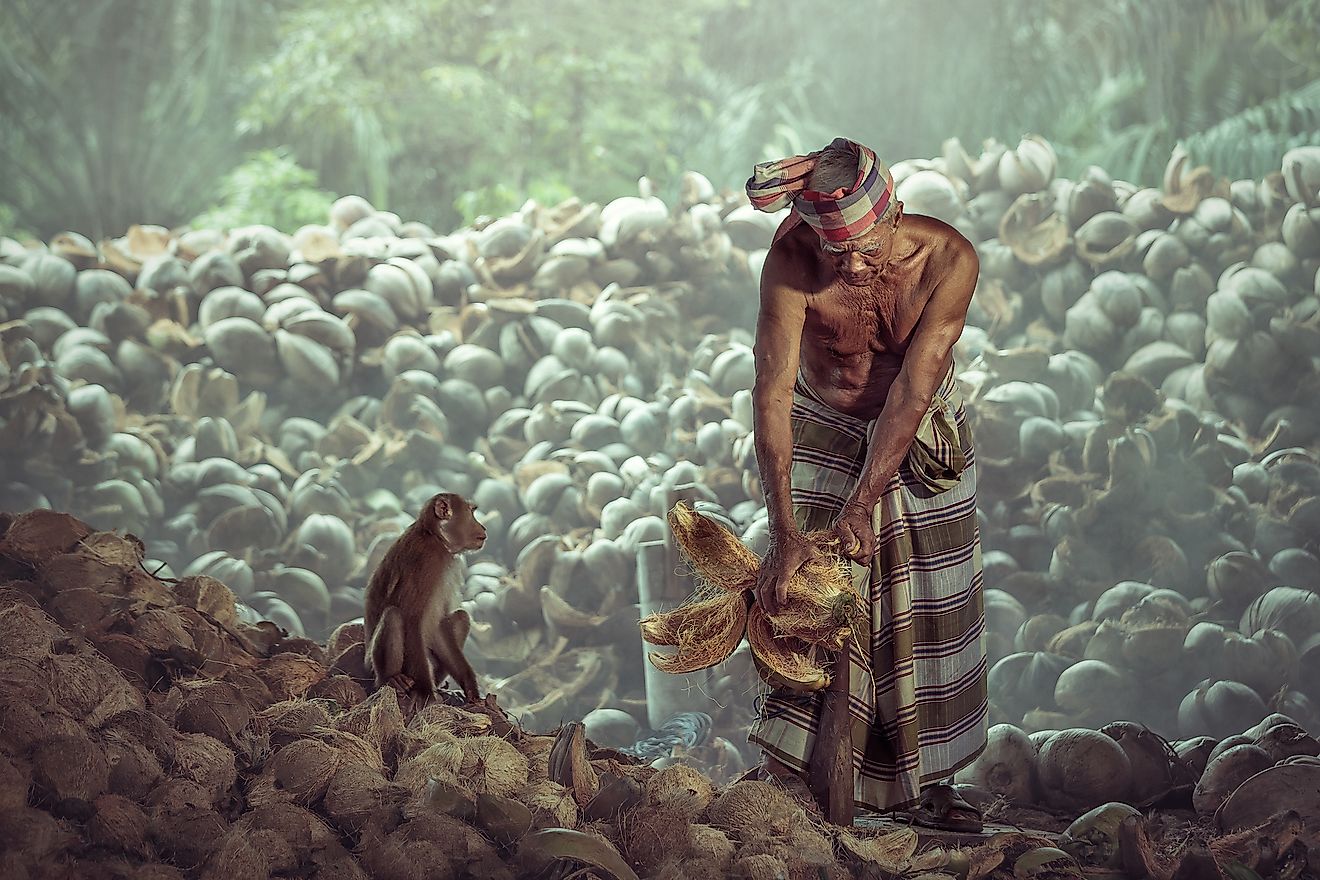The World Leaders In Coconut Production

Coconuts' remarkable levels of resilience means that they can be grown in a wide variety of soils, although they do require a relatively high amount of rainfall. The natural habitat of coconuts is found in coastal areas and on the fringes of deserts. The coconut is a tropical tree species, mainly grown and harvested by small-scale farmers. Production of coconuts is concentrated on island and coastal areas, such as Fiji and Samoa, as well as in the humid tropics, such as India, the Philippines, Thailand and Indonesia.
The coconut is a very useful plant with a wide range of products being sourced from it. Coconut products are used to make everything from clothing to animal feed to beauty creams. Its kernel is harvested for its edible flesh and delicious water, while its husk is used for its strong fibers. Most important, however, are its oils, which are extracted, processed, and marketed for culinary, medicinal, and cosmetic uses alike. Typically, the flesh is first dried down to 6% moisture to make copra. This product is then hauled to factories across the world where it is manufactured into oil. Less widely used, but more valuable, “virgin” coconut oil is directly extracted from raw coconut.
Top 5 Coconut Producers In The World

1. Indonesia - 17.13 million metric tons
Indonesia is the world leader of coconut production. The majority of the country's coconuts are produced in the province of North Sulawesi. Many of the coconuts produced in Indonesia are exported overseas. Indonesia is also one of the world's top producers of pineapples.
2. Philippines - 14.77 million metric tons
The Philippines is the world's second largest producer of coconuts. It was previously the world's largest producer before being overtaken by Indonesia. Luzon, Southern Mindanao, and the Eastern Visayas are a few of the country's most prominent locations for coconut producing. It is estimated that around one quarter of total farm land in the Philippines is dedicated to coconut production.
3. India - 14.68 million metric tons
India is the third largest coconut producer in the world. In 2016, the country was responsible for the production of over 119 million tonnes. Coconut production is very important to the agricultural industry in India and the economy as a whole, especially in rural areas of the country.

4. Sri Lanka - 2.47 million metric tons
The island country of Sri Lanka is the world's fourth largest producer of coconuts. Sri Lanka trails just behind Brazil with 2,513,000 tonnes produced annually. The country's warm and sunny climate is ideal for coconut growth.
5. Brazil - 2.33 million metric tons
Brazil is the world's fifth largest producer of coconuts. In 2016, Brazil produced over 2 million tonnes of coconut. Although this number is not as significant as the Asian countries on this list, coconut production in Brazil is growing as demand for coconut products increases. Like the other countries on this list, coconut production is an important part of the country's economy.
The Future Of Coconuts
Today, the top coconut suppliers are struggling to meet the increasing demands of the global economy. Coconut has been a cash crop for decades and, even with stiff competition from other vegetable oils, it promises to continue to be a profitable venture in the future. Nonetheless, the top global coconut producers must learn from the current situation, and take steps to ensure that their farms are sustainable enough to stand the tests of time and meet future demands.

‘Fair Trade’ practices in the industry try to ensure that the benefits of the booming sector will trickle all of the way down to small farmers, but they unfortunately keep the production rates rising at a slower rate. Lack of investment in sustaining the coconut-growing land’s productivity, largely due to the high costs associated, mean that some farms are producing 75% less fruit than they did 30 years ago. The problem of insufficient supply to meet the increased demand is not helped by the fact that many of the trees producing coconuts today are over 50 years old, 20 years past their prime production years. According to APCC (the Asian and Pacific Coconut Community), many plantations across Asia are experiencing zero growth, and some are even ceasing production as their farmers switch their focus to oil palm production.
10 Countries With The Highest Coconut Production
| Rank | Country | Production in million metric tons |
|---|---|---|
| 1 | Indonesia | 17.13 |
| 2 | Philippines | 14.77 |
| 3 | India | 14.68 |
| 4 | Sri Lanka | 2.47 |
| 5 | Brazil | 2.33 |
| 6 | Vietnam | 1.68 |
| 7 | Mexico | 1.29 |
| 8 | Papua New Guinea | 1.19 |
| 9 | Thailand | 0.81 |
| 10 | Malaysia | 0.54 |











